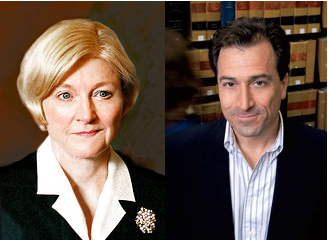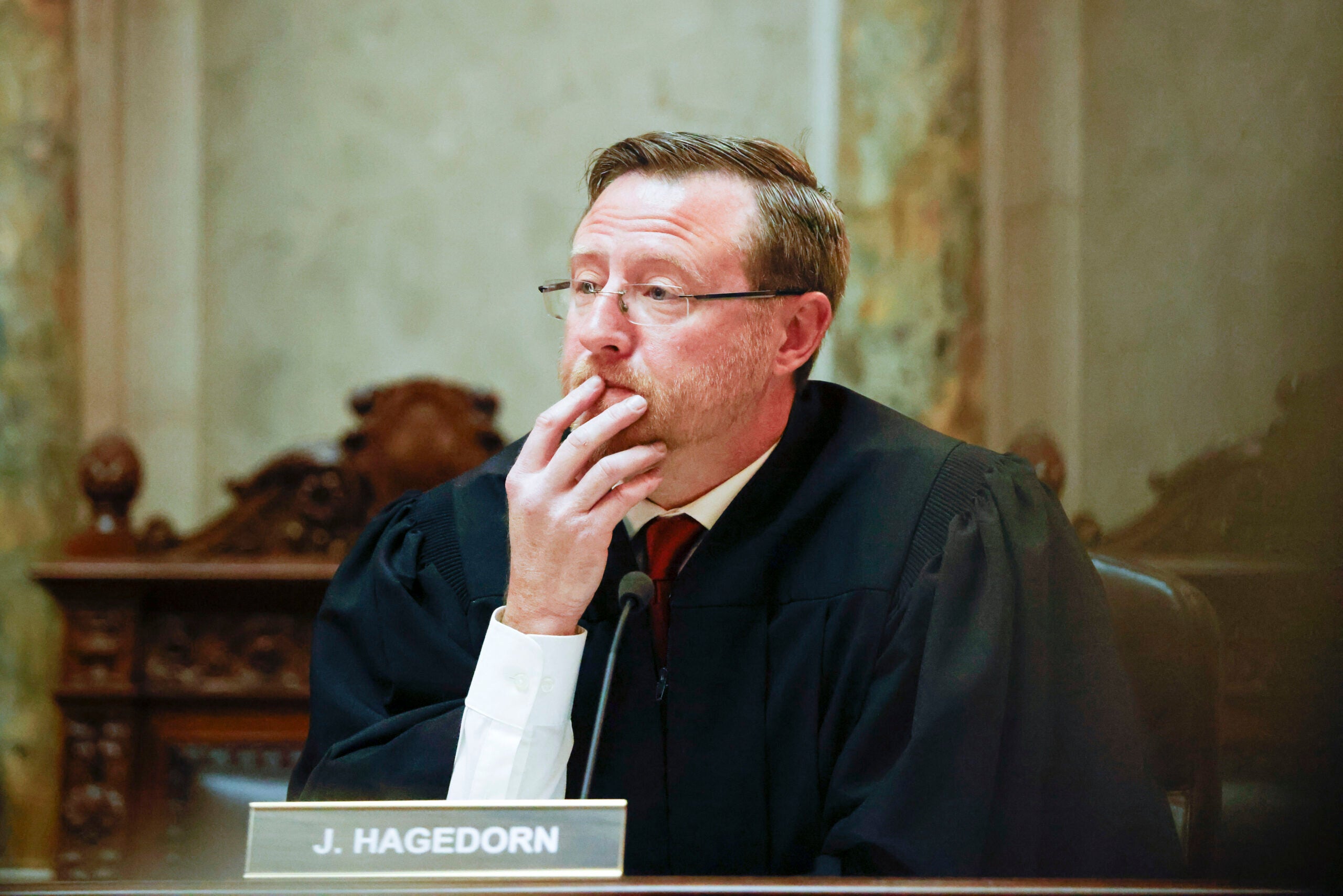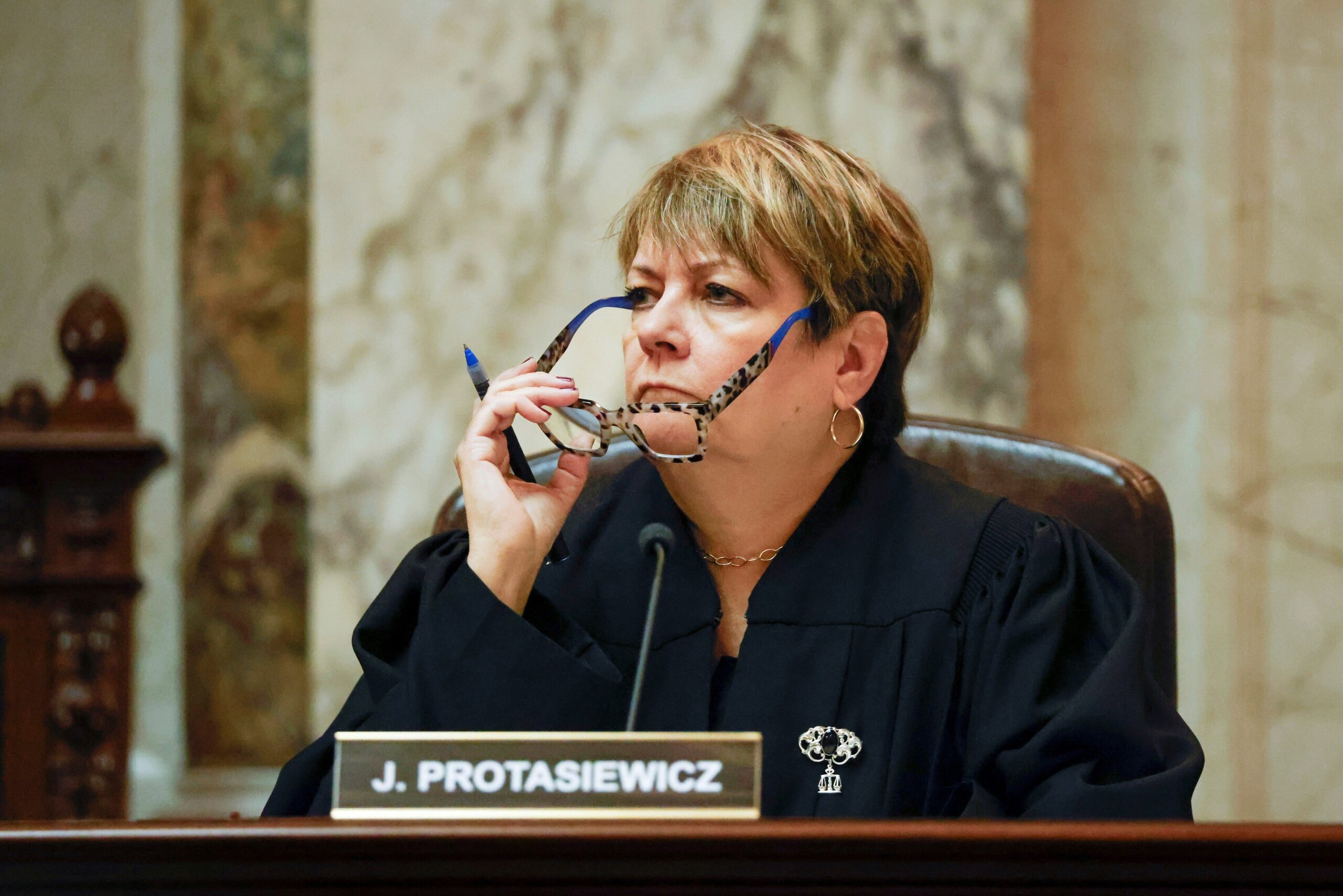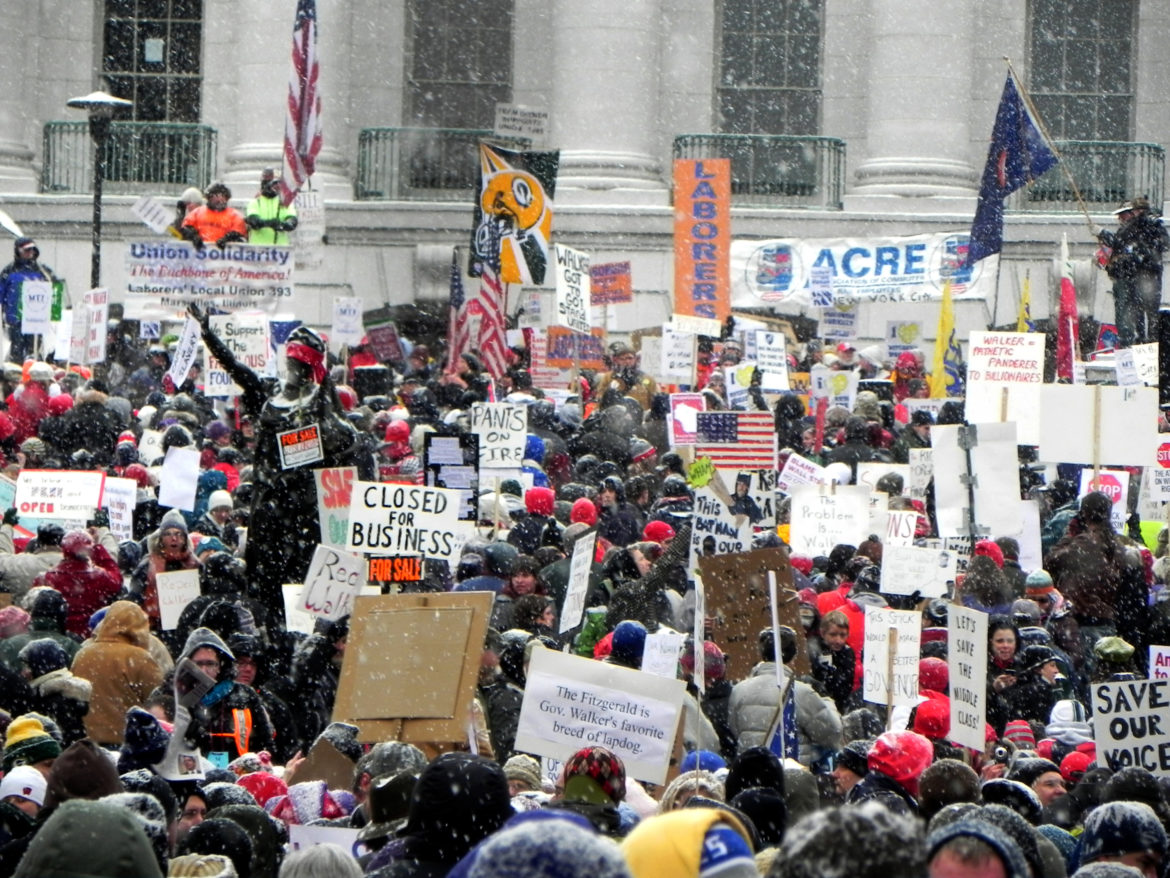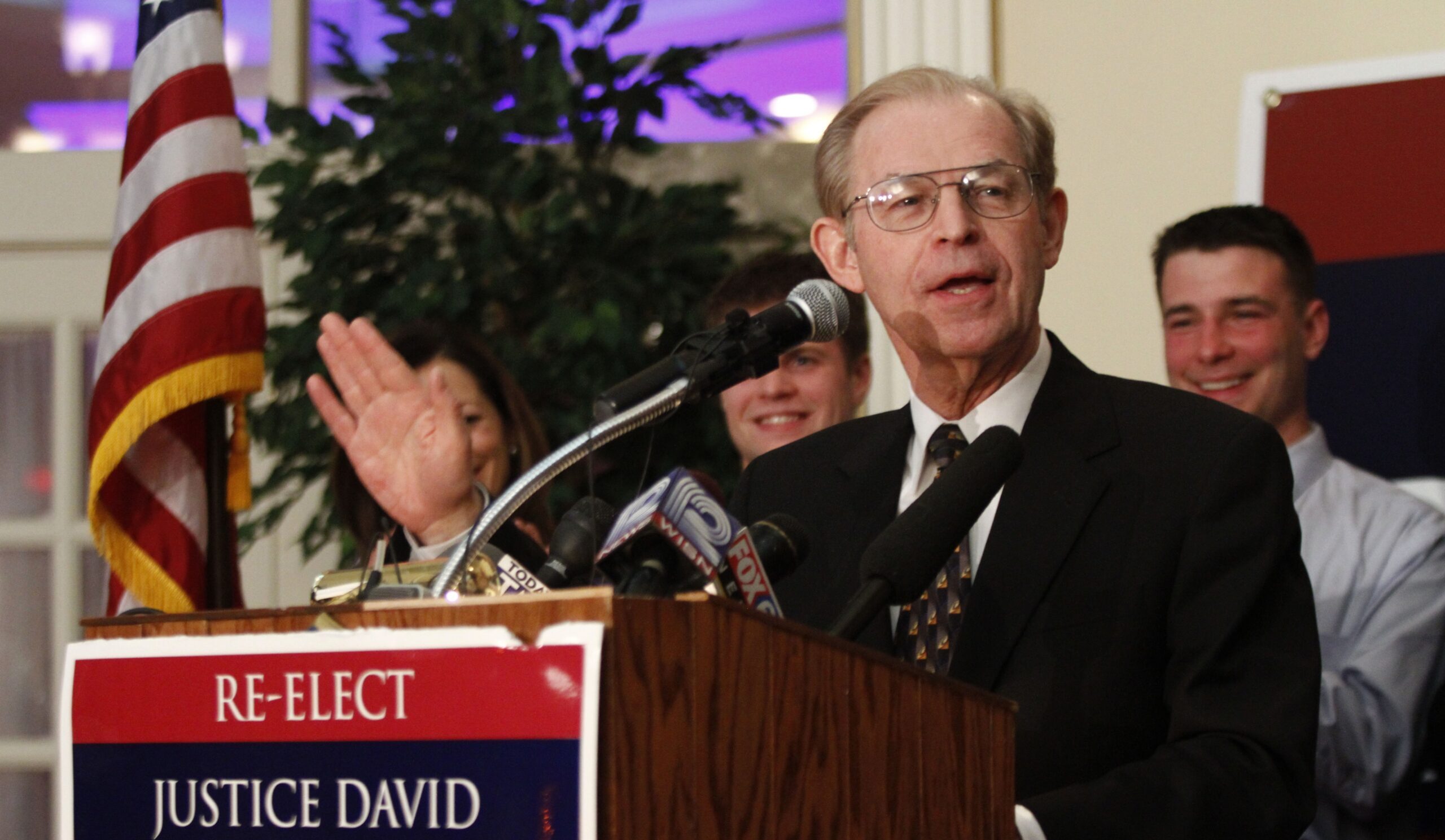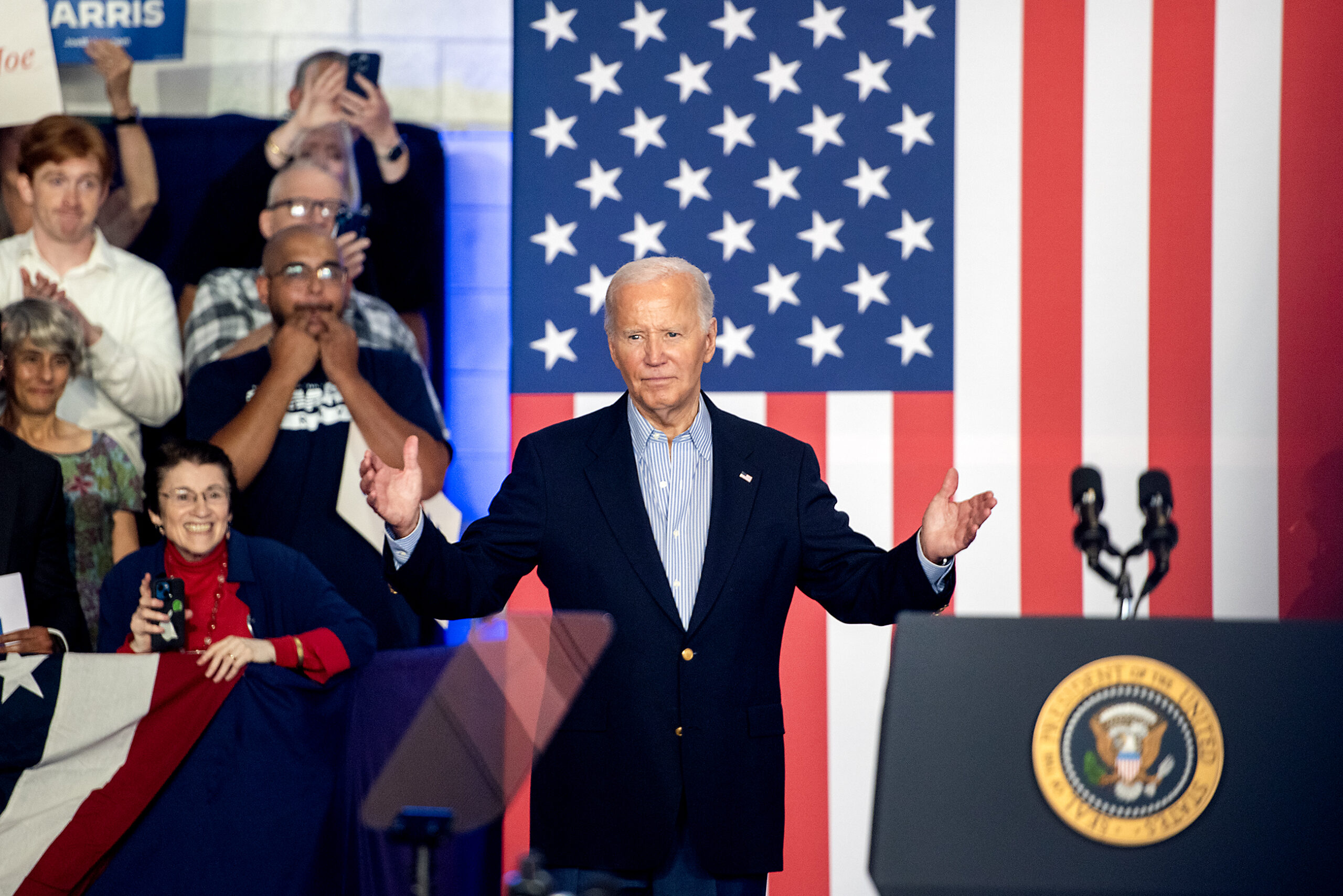This is Part Two in a two-part series by Gilman Halsted on the upcoming Supreme Court election. Read or listen to the first entry here.
The two candidates in the race for state Supreme Court disagree about the need to reduce the influence of money in judicial elections.
The challenger in the race, Marquette University law professor Ed Fallone, says justices should be required to consider stepping down from cases that involve parties who have contributed large amounts to their campaigns. Current Supreme Court rules approved in 2010 make it possible for Supreme Court justices to sit on a case regardless of how much a party in the suit might have contributed to the justice’s election campaign. In a recent debate, Fallone said that rule leads to a perception of bias and should be changed.
Stay informed on the latest news
Sign up for WPR’s email newsletter.
“I think that when someone leaves the courthouse, and they have perhaps lost their case, they need to feel that they were treated fairly. When they discover that that judge had received substantial campaign contributions from someone on the other side of the aisle – either the party or their lawyer – they’re going to doubt whether they were treated fairly.
But incumbent Justice Pat Roggensack defends the current rule. She says it is not realistic to assume a campaign contribution will influence a judge who is considering a case.
“That just really isn’t the circumstances. We have an elective system and the judges are presumed to be honest, fair and independent. So we have to be careful that in our efforts here about recusal, we don’t basically besmirch the judiciary as a whole.”
The two candidates also disagree about how to deal with campaign spending on issue ads paid for by unions or business groups. Here is an excerpt of an ad in the current race paid for by a group connected to Wisconsin Manufacturers and Commerce:
“Pat Roggensack protected Wisconsin children, voting to close a loophole that would have let a sexual predator back on the street; praised by prosecutors, Pat Roggensack saw the risk and put children’s safety above all else.”
The vote Roggensack is credited with casting refers to a majority opinion she wrote in 2004. Roggensack says ads like these, paid for by outside groups, are out of the control of the candidates they attack or support.
“They don’t ask you about it, they don’t approve it with you, they don’t tell you if they’re going to do it, and the candidate can’t control it. In fact, it could be a violation of Wisconsin election laws to attempt to be involved in it.”
But her challenger Ed Fallone says changing the recusal rules could reduce spending by outside groups.
“Independent groups would have to think twice before coming in with a large donation in the midst of a campaign if it might lead to that judge recusing himself in a later case where that party brings a motion.”
If Ed Fallone is elected, his stance could result with him having to recuse himself, should a case challenging the state’s law restricting public-union bargaining comes back before the Supreme Court. He received more than $50,000 in campaign contributions from unions that want the law overturned. But by that same logic, Justice Roggensack might be asked to recuse herself from the case because supporters of the law, like Wisconsin Manufacturers and Commerce, spent money on her campaign.
The election will be held next Tuesday, April 2.
Wisconsin Public Radio, © Copyright 2025, Board of Regents of the University of Wisconsin System and Wisconsin Educational Communications Board.

